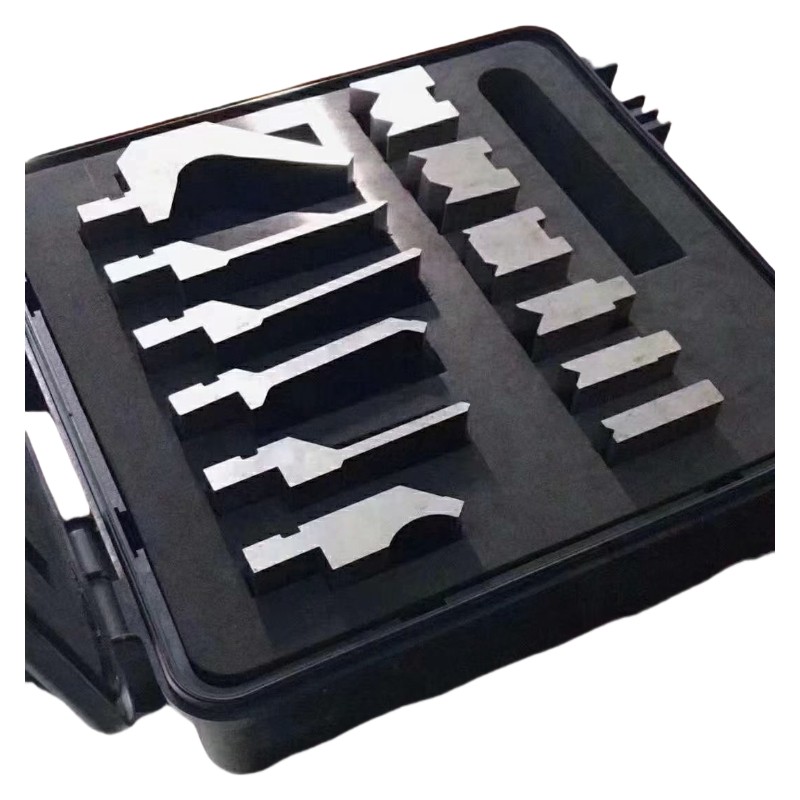The right bending machine mold is crucial for achieving accurate and clean bends in metal fabrication. However, the optimal mold choice varies significantly depending on the type of metal being worked. At AIFOYIN, we understand these nuances and offer a comprehensive range of bending machine molds designed to handle various materials with precision and efficiency. Our company specializes in the production of CNC shearing machines, CNC bending machines and knife molds.

Understanding Material Properties
Different metals possess distinct properties like hardness, strength, and ductility, directly influencing their bending behavior. Selecting a mold that complements these properties is essential for preventing defects and ensuring quality bends.
Hardness: Harder metals like stainless steel require molds with higher durability and strength. Softer metals, such as aluminum, benefit from molds with relatively low hardness to avoid excessive indentation.
Strength: High-strength materials demand robust molds capable of withstanding greater bending forces.
Ductility: More ductile metals can be bent into tighter radii without cracking, allowing for greater flexibility in mold selection.
Mold Selection by Metal Type
1. Mild Steel:
For mild steel (thickness within 3mm, the maximum length does not exceed 2500 mm), the free bending force does not need to be greater than 80 tons.
If there is a large amount of bottom bending in the operation, then perhaps you should consider purchasing a bending machine of about 150 tons.
2. Stainless Steel: Stainless steel typically requires about 50% more load than mild steel. Therefore, molds should be made of high-strength, heat-treated steel to withstand the increased pressure. Also, in order to reduce the rebound, the material should be as low-carbon steel as possible, not high carbon steel and stainless steel.
3. Aluminum:
Aluminum requires about 50% less load than mild steel.
Molds with lower hardness are suitable to prevent indentation.
4. High Carbon Steel, Hard Aluminum, Super Hard Aluminum: For some high carbon steel, hard aluminum, super hard aluminum, small fillet This can cause the bend to break or the bullnose to crack.
5. Special Alloys and Composite Materials: Bending these materials may require specially customized molds to ensure the bending effect and mold life.
General Mold Types
V-dies: Commonly used for general bending operations.
Gooseneck dies: Ideal for complex shapes. Bending molds include L-shaped, R-shaped, U-shaped, Z-shaped, etc.
Key Considerations
Bending Angle and Shape: Different bending angles require molds of different shapes. For bending at special angles, customized molds may be required.
Bending Radius: The bending radius should not be too large or too small and should be appropriately selected. If the bending radius is too small, the bending will be cracked, and the bending radius is too large so that the bending is easy to rebound. The rounded corners of sheet metal bends should be chosen as small as possible, which is good for accuracy. In particular, it should be avoided to design large arcs as much as possible.
AIFOYIN: Your Partner in Bending Solutions
At AIFOYIN, we offer a comprehensive range of bending machine molds designed to cater to diverse metal types and applications. Our commitment to quality and precision ensures that you have the right tooling for every job. With perfect processing equipment, advanced process equipment and sound quality control system, we're confident in our expertise. Contact us today to explore our selection and find the perfect mold for your bending needs.
